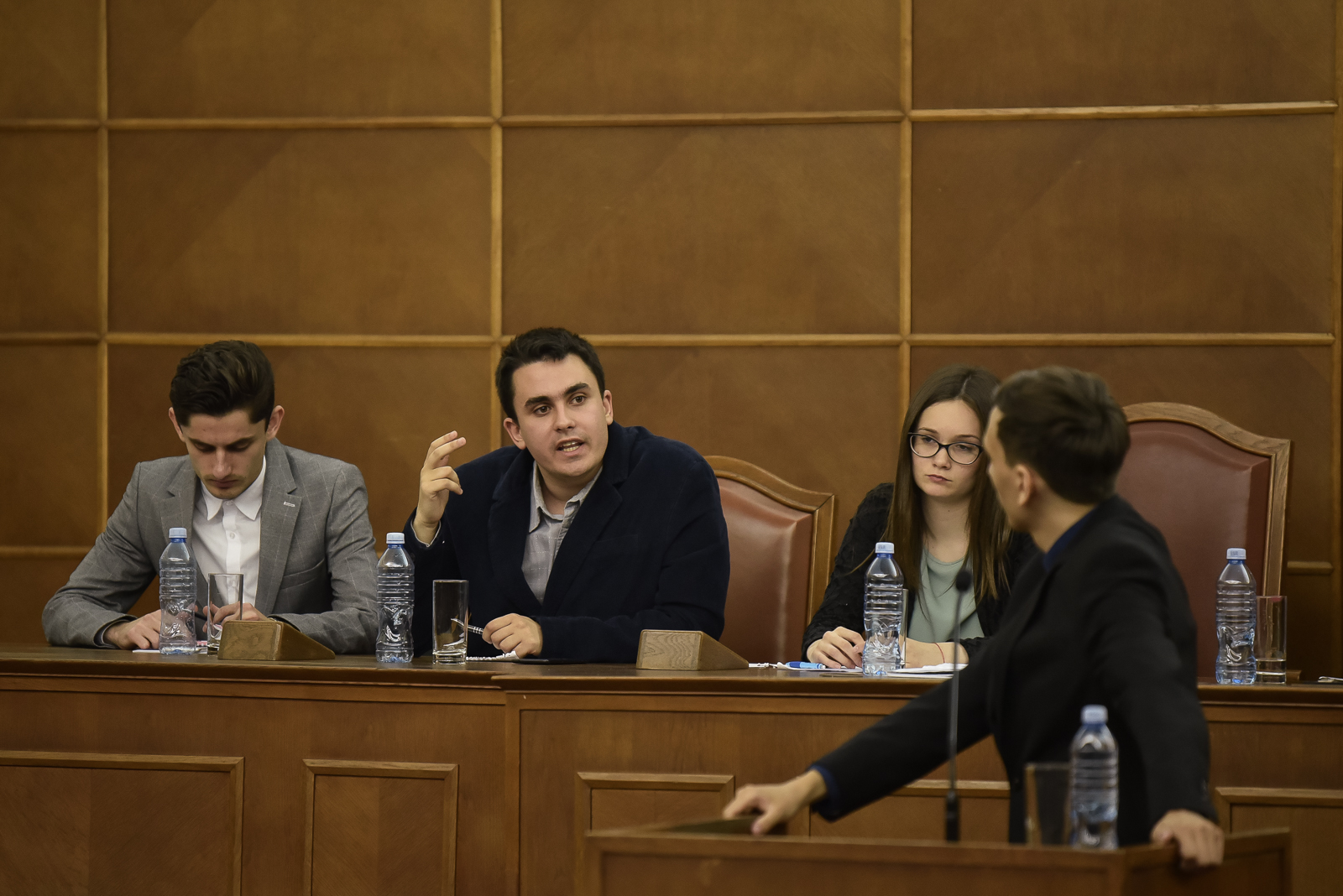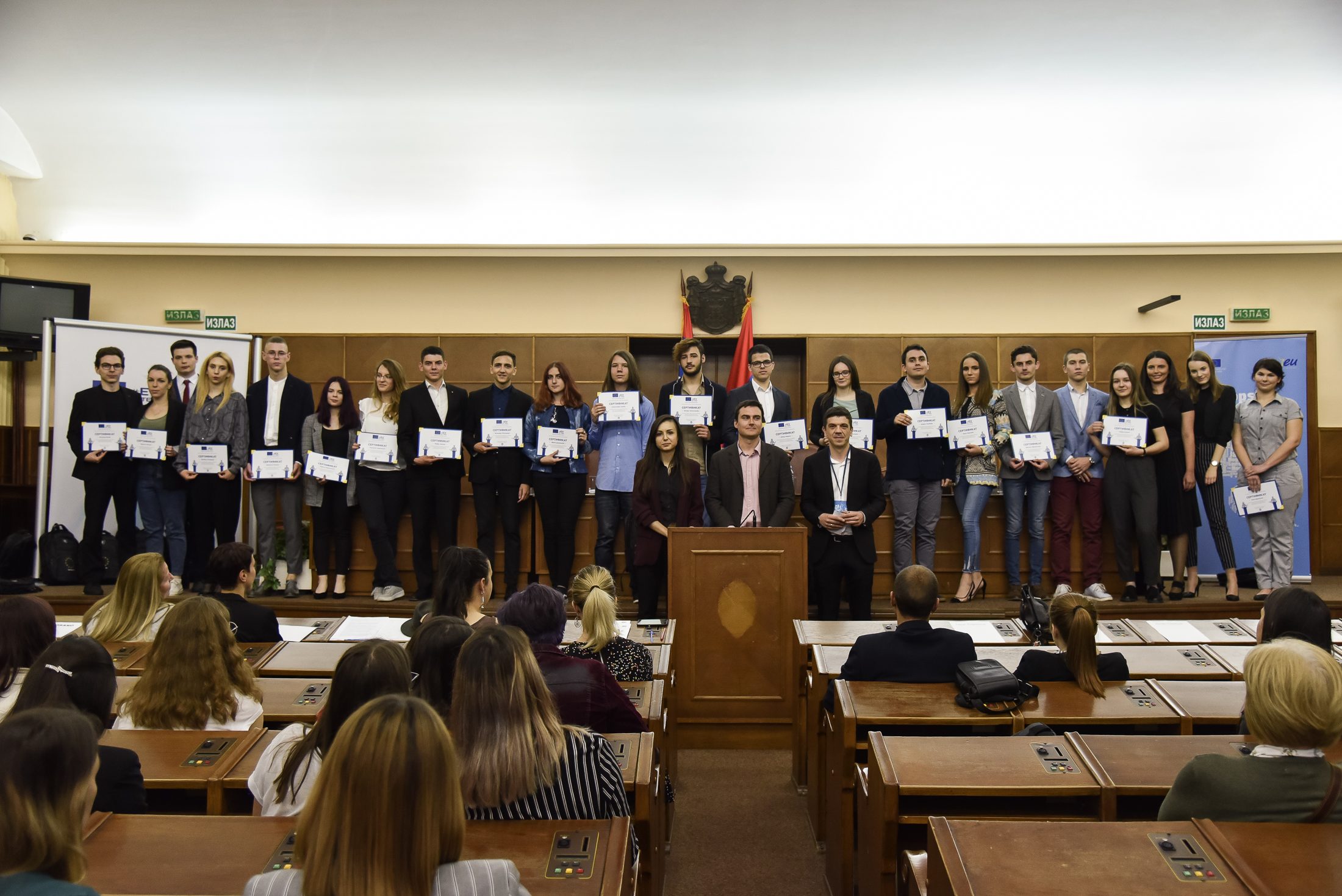“Should participation in Erasmus + exchanges be compulsory for all students?”, The question is what the participants of the European School Debate tried to answer at the closing ceremony of this year’s class. Out of 90 high school students and students, the top seven were selected for the final debate, which was held in the National Assembly of the Republic of Serbia.
The judges had a difficult task to choose which of the two teams (one who defended the position and the other that was not in agreement) was better since both sides prepared interesting argumentation and relevant data and examples. The affirmative team consisted of Vladana Plavšić, Dunja Pavlović, Novak Čelebić and Dušan Zdravković, while the arguments against the main claim were Aleksandra Pešić, Marko Macet, and Velimir Milošev.
The affirmative team considered that through Erasmus + not only formal knowledge was available at reputable European universities, but also an interesting experience of living in another country and opportunities for students to become familiar with people and culture. Research shows that one-third of young people never came from Serbia, says one of the debates of Dunja Pavlović. It is also an opportunity to consolidate a common European identity, claims her teammate Novak Čelebić.

If students commit themselves to participate in exchange programs, the freedom to choose their own path would be jeopardized, according to Aleksandra Pešić, a member of the opposing team. Her colleagues argued against the economic unsustainability of such a solution, as well as the danger of the rise of xenophobia, which would be spread by the tabloid media, and the possible deterioration of the brain drain.
The jury composed of Head of Information, Communication and Media of the EU Delegation to Serbia, Paul Henri Presset, MP Dušica Stojković, and the representative of the NGO Open Communications, Teodora Rešetar, has chosen the team that supported the thesis.
“According to the rules of the debate, the final speakers must not present new arguments and material, because the other team has no opportunity to answer what happened to the team that did not support the basic attitude. That’s why the affirmative team took the victory, “explains Rešetar, who in 2017 became the world champion in the debate. Presset and Stojkovic praised the readiness of the debater and the desire to exchange views and offered practical advice on how to make them even better.
“This debate was an example of how problems are resolved in a calm and logical way, to get to know the topics and to make a conclusion on what is good. We often argue for no reason and this is a great way to find out how to calm down, “said one of the debaters, Velimir Milošev.
There are many positive aspects of learning the basis of debate during schooling, say experts who deal with this skill.
“In the first place is the development of argumentation, number two, a public appearance. It seems that in regular education, students do not get a chance to speak. Teamwork is also important. What we do on lessons is often not cooperative learning, and here they get the chance to work on it, “says Bojana Golubović from the Debate Club of the city of Nis.
During the five years of existence, the project European School of Debate has expanded from Belgrade to 40 cities in Serbia, and through the workshops over 300 participants have passed. The project is implemented by the EU Delegation to Serbia, the EU Info Center, and the NGO Open Communications.




